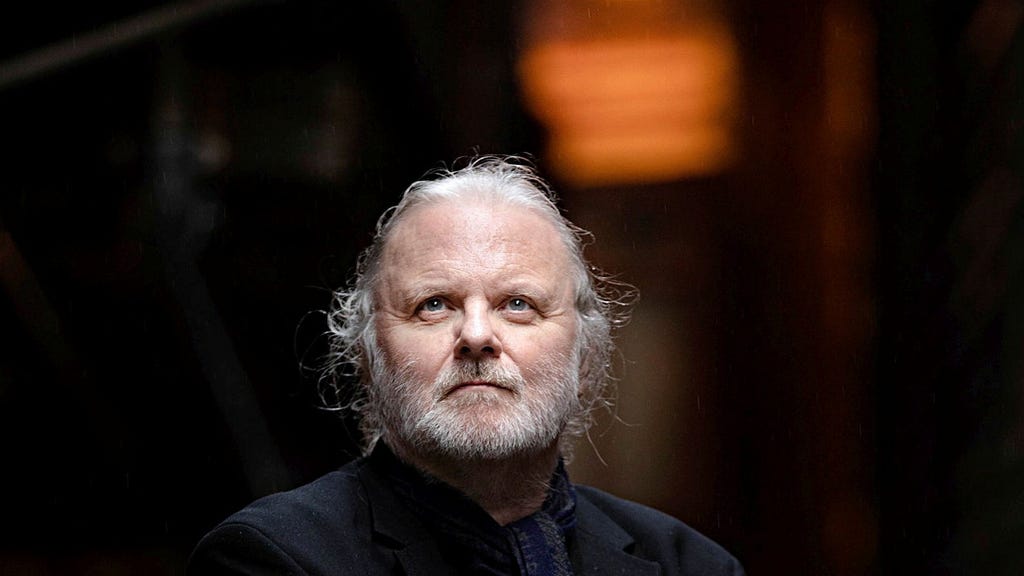Jon Fosse’s ”Vithet” (Whiteness), a concise novel spanning a mere 64 pages, opens with a man driving aimlessly through a desolate autumnal landscape. This seemingly arbitrary journey, driven by an overwhelming sense of boredom and a lack of purpose, leads him deeper into a darkening forest where his car eventually becomes trapped. This initial scene mirrors the opening of Fosse’s monumental ”Septology,” yet ”Vithet” charts its own distinct course, a compact narrative of existential wandering and an encounter with the enigmatic realm of death. Leaving the relative safety of his vehicle, the man ventures into the increasingly oppressive darkness of the woods, mirroring, in a way, Dante’s descent into the infernal forest in ”The Divine Comedy.” However, unlike Dante’s weighty despair, Fosse’s protagonist is burdened only by a profound sense of ennui. This journey is not a fantastical odyssey through hell, purgatory, and paradise, but a stark and chilling confrontation with mortality.
As snow falls and the cold intensifies, the man becomes lost, encountering spectral figures – a luminous being followed by two apparitions he identifies as his parents, and later, a barefoot man in a suit and tie. These encounters are relayed with a detached, almost disbelieving tone, adding to the surreal and dreamlike quality of the narrative. This is not a straightforward depiction of death, but rather a descent into a liminal space where reality blurs and the boundaries between the living and the departed become increasingly permeable. The stark, wintry landscape mirrors the inner landscape of the protagonist, a desolate terrain reflecting his emotional and spiritual emptiness.
”Vithet” is a condensed prose rendition of Fosse’s play ”Inne i svarta skogen” (Inside the Black Forest), both released in 2023, the same year Fosse was awarded the Nobel Prize in Literature. This coincidence made ”Vithet” a crucial introductory work for many international readers, although its title proved problematic, notably in the US where it was rebranded as ”A Shining,” ostensibly to avoid political interpretations of the word ”whiteness.” The play provides a more detailed backstory for the protagonist and engages with themes of faith and divinity, elements largely absent from the novel’s more suggestive narrative. This streamlined approach arguably elevates ”Vithet,” allowing the evocative prose and haunting imagery to resonate more powerfully.
Fosse’s writing, echoing the symbolism of Nordic folktales and the enigmatic whispers of the natural world, unfolds in a rhythm both fragmented and fluid. His signature repetitions, akin to a stream of consciousness, contribute to the hypnotic and mesmerizing quality of the narrative. Lars Andersson’s translation skillfully captures the essence of Fosse’s Norwegian, rendering the text into a Swedish remarkably close to the original. This fidelity preserves the unique cadence and lyrical intensity of Fosse’s prose, allowing the reader to fully immerse themselves in the stark beauty of the narrative.
Despite Fosse’s conversion to Catholicism, his portrayal of death in ”Vithet” defies orthodox interpretations. Within the confines of its brevity, the novel evokes a unique mystical atmosphere, presenting death not as a definitive end, but as a mysterious transition, a realm of doubt, questioning, and unresolved uncertainties. This humanistic portrayal, imbued with a quiet sense of wonder and acceptance, imbues the narrative with a profound and ultimately beautiful contemplation of mortality. The protagonist’s journey into the dark forest becomes a metaphorical exploration of the unknown, a confrontation with the ultimate mystery that shapes and defines human existence.
In ”Vithet,” Fosse masterfully crafts a powerful and evocative exploration of mortality, using the stark backdrop of a winter forest to mirror the protagonist’s inner landscape. The novel’s brevity intensifies its impact, leaving a lasting impression of profound beauty and existential questioning. Despite dealing with weighty themes of death and the unknown, ”Vithet” avoids didactic pronouncements, offering instead a poetic and deeply human meditation on the final journey. The novel’s power lies in its suggestive imagery, its hypnotic rhythm, and its unflinching confrontation with the mysteries that lie at the heart of human existence.














